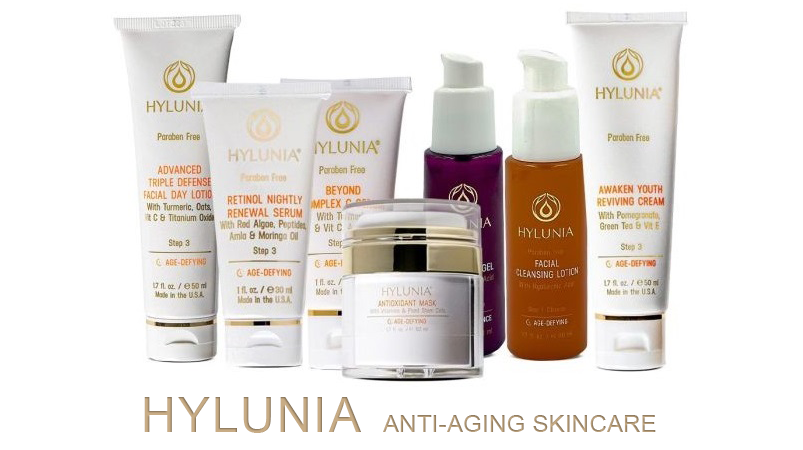
When it comes to skincare, there’s often confusion around hydrating and firming products. Do you need both? Are they interchangeable? And how do you know which one is right for your skin? Hydrating and firming skincare have distinct benefits, and understanding the difference can help you build a routine that keeps your skin looking healthy and youthful.
Contents
- Understanding Hydrating Skincare: The Foundation of Healthy Skin
- Firming Skincare: Strengthening Skin’s Structure
- Choosing Between Hydrating and Firming Products
- How to Incorporate Both Types in Your Routine
- Frequently Asked Questions about Hydrating vs. Firming Skincare
- Building a Routine for Long-Term Results
Understanding Hydrating Skincare: The Foundation of Healthy Skin
Hydrating skincare products are all about moisture. When your skin is hydrated, it appears plump, smooth, and radiant. Hydration is essential for all skin types, not just dry skin, because it helps support the skin’s barrier, keeping it resilient against environmental stressors.
How Hydrating Ingredients Work
Hydrating ingredients draw water to the skin and lock it in, helping to prevent dryness and tightness. They work at different levels within the skin, depending on the ingredient. Here are some common hydrating ingredients you’ll find in skincare products.
- Hyaluronic Acid: This humectant holds up to 1,000 times its weight in water, making it a hydrating powerhouse that plumps the skin and keeps it supple.
- Glycerin: Another effective humectant, glycerin attracts moisture to the skin and helps improve its softness and resilience.
- Ceramides: These are lipids that help strengthen the skin’s barrier, locking in moisture and protecting against environmental damage.
Who Needs Hydrating Products?
If your skin feels tight, rough, or looks dull, it could be dehydrated. Even oily skin can be dehydrated and benefit from hydrating products. Hydration also helps reduce the appearance of fine lines, as plump skin makes wrinkles less noticeable.
Most people can benefit from a hydrating product in their routine, especially if they experience seasonal dryness or live in a dry climate.
Firming Skincare: Strengthening Skin’s Structure
Firming products, on the other hand, are designed to enhance the skin’s elasticity and tighten areas that have started to sag or lose firmness. These products are typically anti-aging in focus, helping to combat collagen loss and give skin a more lifted, youthful look.
Key Firming Ingredients
Firming skincare often includes ingredients that stimulate collagen production, protect elastin, or create an immediate lifting effect. Here are some powerful firming ingredients you’ll come across.
- Retinol: A vitamin A derivative that promotes cell turnover and boosts collagen production, helping to firm and smooth the skin over time.
- Peptides: These amino acid chains signal the skin to produce more collagen and elastin, providing structural support that makes skin appear firmer.
- Vitamin C: This antioxidant not only brightens skin but also supports collagen production, which keeps skin looking firm and youthful.
Who Benefits Most from Firming Products?
Firming products are ideal for those starting to notice sagging, especially around the jawline, cheeks, and eyes. They’re particularly beneficial for mature skin, as collagen and elastin naturally decline with age. However, younger individuals can also benefit if they’re looking to prevent early signs of sagging or maintain a firm skin structure.
Choosing Between Hydrating and Firming Products
So, which one is right for you? It really depends on your skin type and concerns. Let’s look at a few common scenarios to help you decide whether to reach for hydration, firming, or a combination of both.
If You Have Dry, Flaky Skin
Hydration is your first priority. Dry skin lacks moisture and can make fine lines appear more noticeable. Look for products rich in humectants like hyaluronic acid and glycerin to restore moisture and keep your skin feeling comfortable.
If You’re Noticing Fine Lines or Sagging
In this case, a firming product might be the way to go. Retinol, peptides, and vitamin C can help address these concerns by boosting collagen and providing lift. You can layer a hydrating serum under a firming cream for an extra boost.
If You Want to Maximize Your Skincare Routine
Using both hydrating and firming products can give you the best of both worlds. Start with a hydrating serum to plump up the skin, then follow with a firming moisturizer or treatment to lock it in and add extra lifting benefits.
How to Incorporate Both Types in Your Routine
Adding both hydrating and firming products to your skincare routine doesn’t have to be complicated. Here’s a simple routine that makes it easy to get the benefits of each without overwhelming your skin.
Step 1: Start with a Hydrating Serum
After cleansing, apply a hydrating serum that contains hyaluronic acid or glycerin. This step provides a moisture base, plumping the skin and helping it absorb the firming ingredients that follow.
Step 2: Apply a Firming Treatment
If you’re using a firming product like a retinol or peptide serum, apply it after your hydrating serum. These ingredients work at deeper levels in the skin, and layering them over hydration helps them penetrate effectively.
Step 3: Lock it in with a Moisturizer
- Hydrating Moisturizer: If your skin is dry, opt for a rich moisturizer that reinforces hydration and prevents moisture loss.
- Firming Moisturizer: If you’re more concerned about sagging, look for a moisturizer with firming ingredients like peptides or vitamin C.
Following this order ensures your skin gets the hydration it needs, while also benefiting from the firming properties of your anti-aging products.
Frequently Asked Questions about Hydrating vs. Firming Skincare
Still unsure about which products to choose? Here are answers to some common questions to help you make the best choice for your skin.
Can I Use Both Types of Products in the Same Routine?
Yes! Hydrating and firming products actually complement each other well. Hydrating first makes your skin more receptive to firming treatments, allowing them to work more effectively.
Are There Any Ingredients I Should Avoid Mixing?
While hydrating ingredients are safe to use with almost anything, be cautious when combining firming ingredients. For example, avoid layering retinol and vitamin C in the same routine, as they can cause irritation. Alternate them by using retinol at night and vitamin C in the morning.
Do I Need Both Hydrating and Firming Products Year-Round?
Not necessarily. You might find that you need more hydration in the winter and more firming products as you age. Listen to your skin’s needs and adjust your routine based on the season and your current concerns.
Building a Routine for Long-Term Results
Whether you choose hydrating, firming, or both types of products, consistency is key. Skincare is an investment in your skin’s future, and the results get better over time. By understanding your skin’s needs and choosing the right products, you can create a routine that keeps your skin hydrated, firm, and glowing for years to come.

